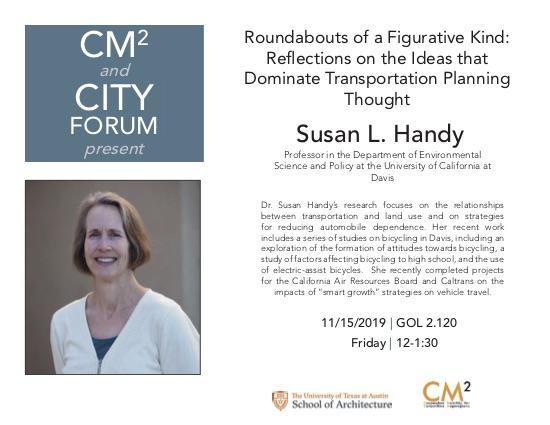City Forum: Roundabounts of a Figurative Kind

About the Speaker
Dr. Handy is a professor in the Department of Environmental Science and Policy at the University of California at Davis and the director of the National Center for Sustainable Transportation, part of the federal university transportation centers program. Her research focuses on the relationships between transportation and land use, particularly the impact of land use on travel behavior, and on strategies for reducing automobile dependence. Her recent work includes a series of studies on bicycling in Davis, including an exploration of the formation of attitudes towards bicycling and a study of factors affecting bicycling to high school, in addition to projects for the California Air Resources Board and Caltrans on the impacts of “smart growth” strategies on vehicle travel. She serves on the Committee on Women’s Transportation Issues and is an associate editor of the newly launched Journal of Transport & Health. She received her B.S.E. in Civil Engineering from Princeton University (1984), her M.S. in Civil Engineering from Stanford University (1987), and her Ph.D. in City and Regional Planning from the University of California at Berkeley.
